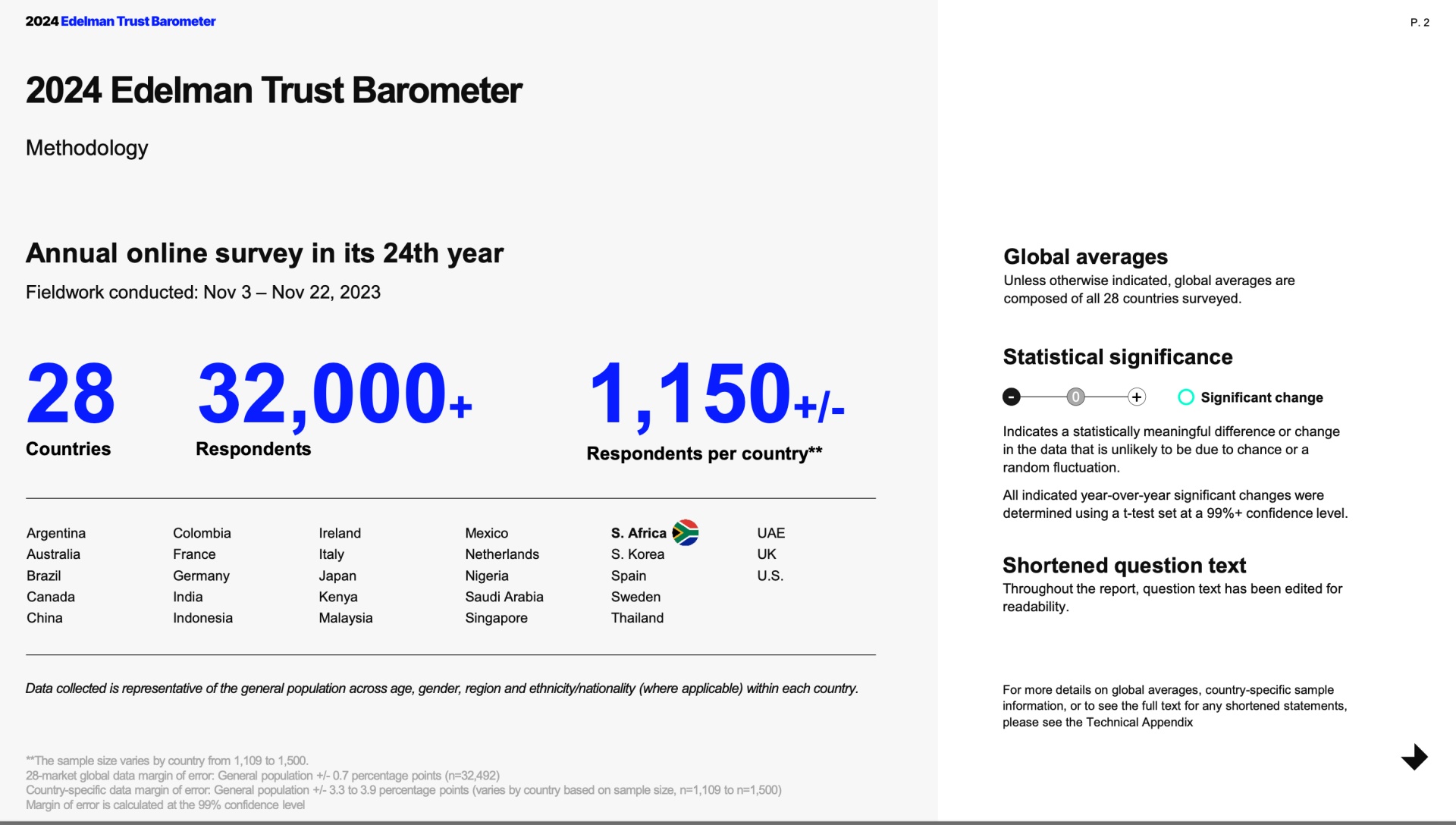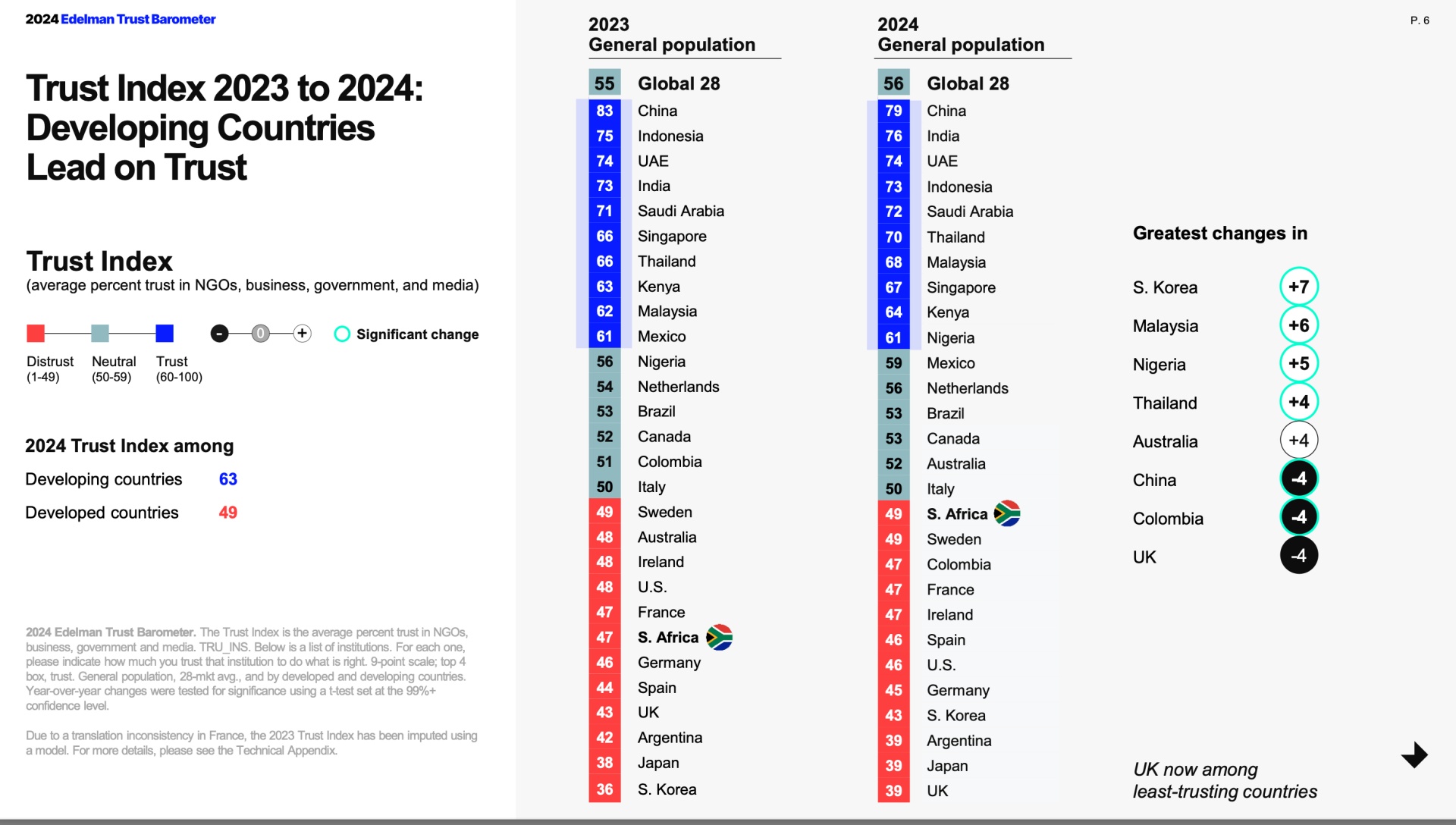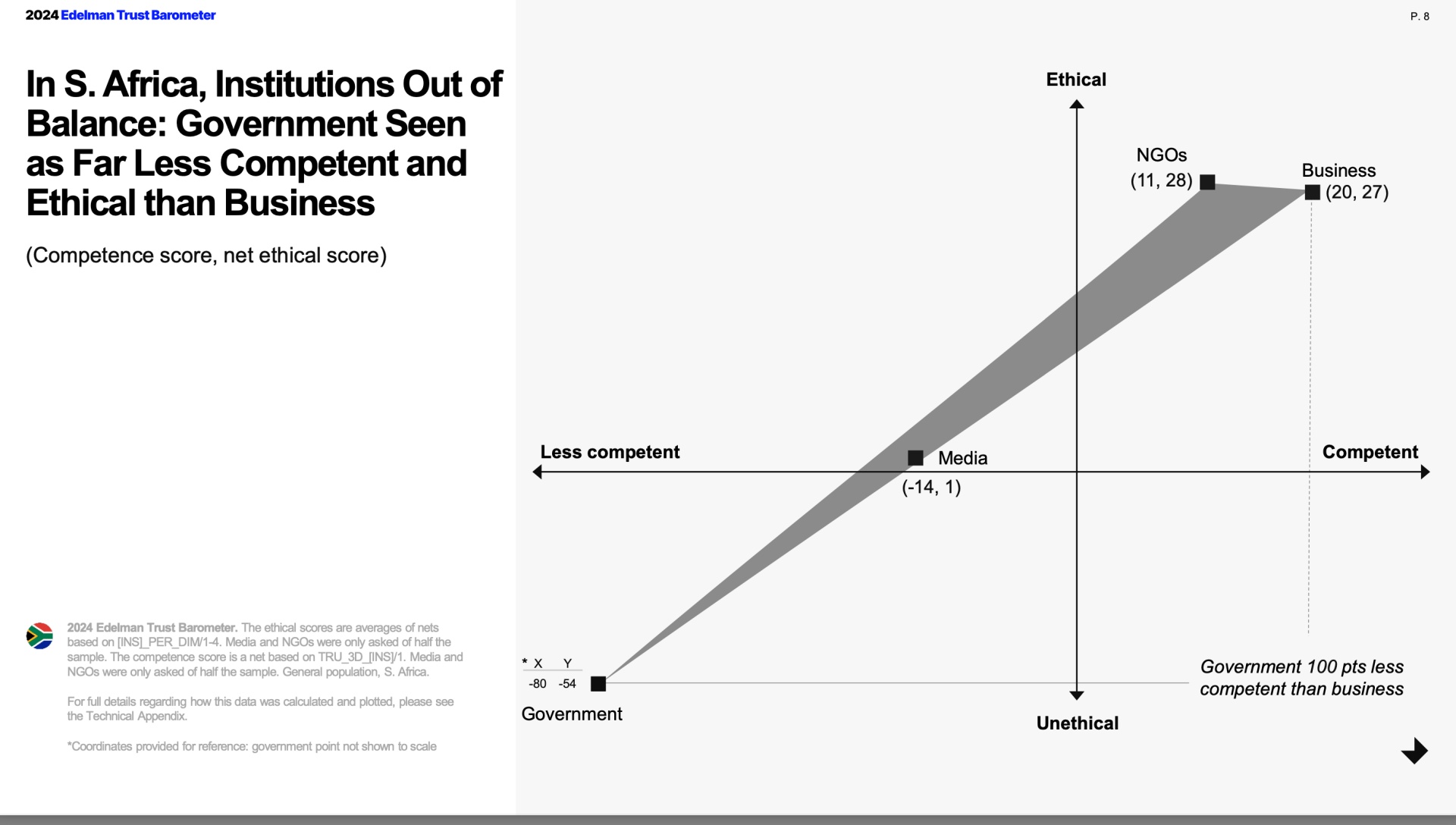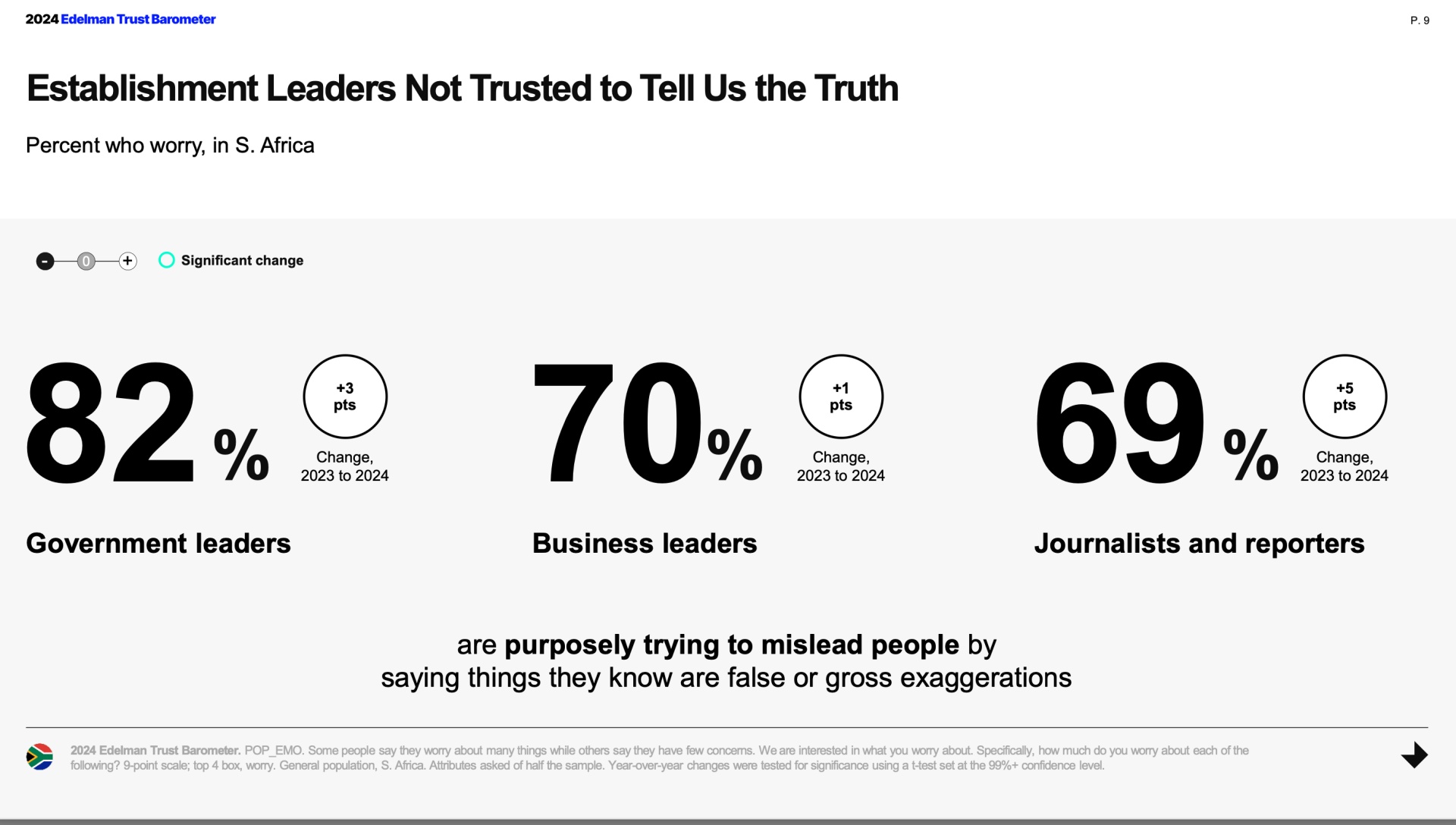- Edelman SA has released its latest Trust Barometer looking at how local citizens view figures of authority and where they get their information.
- Of concern is that South Africans’ trust in local institutions is eroding.
- A potential solution is greater collaborating between government and business leaders, with the latter viewed as more trustworthy.
With the South African national elections only a couple of months away, which political party to trust as you head to the voting station has become a bit more difficult. This as authority figures and leaders from government institutions are seemingly becoming less trustworthy.
Edelman South Africa recently highlighted this growing distrust while presenting its latest Trust Barometer report for the country, sharing both local insights and how SA stacks up against other parts of the globe, which too are struggling when it comes to trustworthiness.
“With South Africa being one of 64 countries globally in an election year, the implications of this trust deficit are profound,” the company shared in a release with Hypertext.
The Barometer, which is now in its 24th year, conducted a survey from 3rd to 22nd November of 2023, with an average of 1 150 respondents from each of the 28 countries where the report was run, including SA.
In terms of trust among citizens, the report generally found that developing countries have greater trust than developed ones, of which SA falls in the latter. Interestingly, the country’s score is slightly more favourable compared to the previous year, but the most concerning findings are around how citizens view government institutions and leaders.


By both measures, there is little trust in government leaders and institutions. To that end, 82 percent of respondents perceive the government, 70 percent see business leaders, and 69 percent view journalists and reporters as, “purposely trying to mislead people by saying things they know are false or gross exaggerations.”
Contrastingly, business leaders are viewed as more trustworthy, which is why Edelman believes that greater collaboration between the public and private sectors are needed in order to make our citizens more trusting of figures of authority.
“Business is most trusted to introduce innovation into society, with an emphasis on partnering with government. CEOs need to safeguard jobs and take a stand on emerging ethical concerns. It is crucial for leaders to ensure that technological advancements are aligned with societal needs and values, fostering a future where innovation promotes inclusivity and sustainability,” noted Karena Crerar, CEO for Edelman Africa, who presented the findings of the report.
“However, trust in industry sectors does not automatically translate to trust in their innovations. For example, while trust in South Africa’s energy sector is relatively low at 58%, trust in green energy innovations is considerably higher at 73%. This disparity may stem from South Africa’s ongoing energy challenges. Similarly, despite a 76% trust level in the technology sector, South Africans are divided on the adoption of Artificial Intelligence, with equal percentages (33%) embracing and rejecting it,” Edelman added.
While there is still some hesitancy when it comes to the adoption of AI, which seems near inescapable at the moment, it looks like South Africans do still hold their friends and family as noteworthy points of authority.
Social media too is becoming a more trusted source of information, although it can be argued that what we search on social media platforms only serves to reinforce worldviews rather than challenge them thanks to how algorithms are built.
“The data reveals that South Africans are most inclined to trust their peers (78%)… to provide truthful information about new innovations and technologies. They rely more on online searches (72%) and social media (69%) for information about new technologies and innovations than on national and local media,” Edelman shared.


It is clear that more needs to be done by government and institutional leaders when it comes to winning the trust of their citizens, but with the pervasiveness of generative AI and social media, it seems like that will be an increasingly difficult task.
Perhaps as Edelman suggests, greater collaboration is required between government and business if the promise of innovation is to be realised in a positive way.
“South Africans are clear in their message. They value business leaders who are vocal on critical issues like the future of job skills, ethical technology use, and the effects of automation on employment. To build trust in innovations, it is essential for leaders to directly address these concerns transparently,” stressed Crerar.
“Innovations, if not carefully managed, can spark as much controversy as they do progress. With breakthroughs like Artificial Intelligence and green energy on the line, explaining the science and managing their impacts become paramount,” she concluded.
You can view (PDF) the findings of the 2024 Edelman SA Trust Barometer here.
[Image – Photo by Joshua Hoehne on Unsplash]

